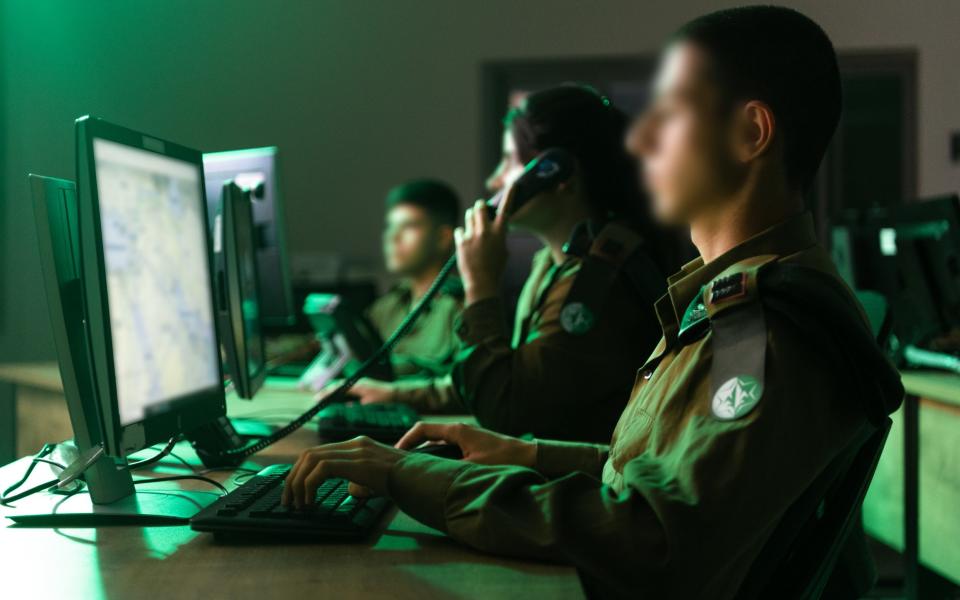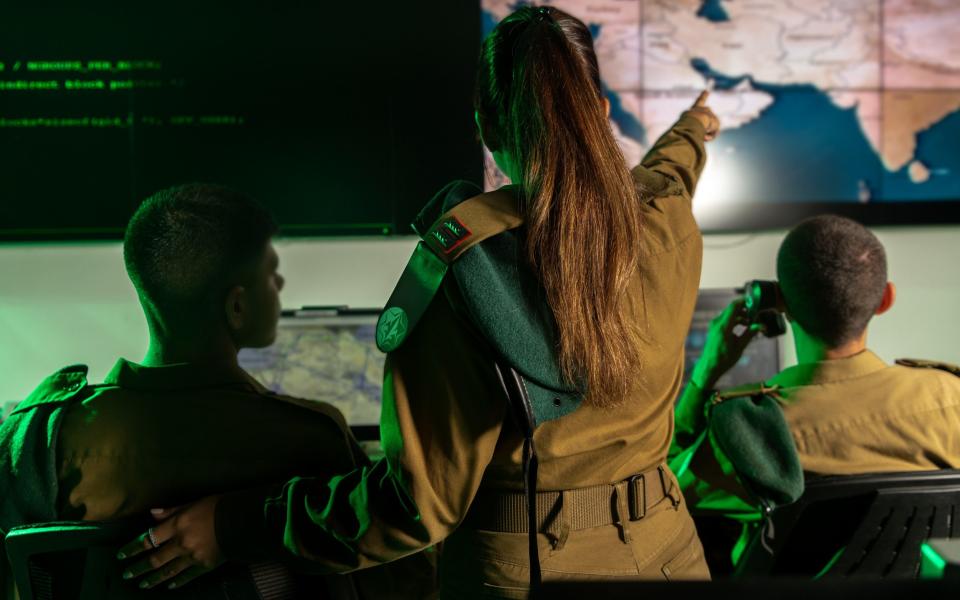Inside the secretive IDF intelligence unit for autistic teenagers

Corporal N is unequivocal in her answer. “Yes, my workload has absolutely increased since the start of the war,” she says. “It’s work around the clock. To do my job, I need to be much more aware, because things happen – and have happened – immediately.”
But what exactly her “job” is, remains something of a mystery. There is talk of “cognitive capabilities,” needing to “remember all the little details,” “creativity” and, perhaps most importantly, she says, patience. “You need a lot of it.”
Such ambiguity stems from the fact that Corporal N, just 19 years of age, serves in an intelligence unit of the Israel Defense Force’s (IDF) Southern Command. It’s a demanding job, cloaked in mystery and secrecy, but one that Corporal N excels at – largely thanks to her autism.
The teenager, fresh out of school, is one of 400 autistic recruits currently serving across the IDF in a range of departments – from the air force to the navy to the army (though none are placed into combat positions).
But only a small proportion of this group are placed in the IDF’s highly classified intelligence units, including the famed 9900 and 8200.
The 9900 is responsible for analysing visual intelligence from satellites and aircraft which is then fed into troops on the battlefield, while the 8200 is similar to that of Britain’s GCHQ, covering everything from public data analysis to the use of in-field human operators.

Corporal N insists she “can’t really talk about most aspects of her position,” and doesn’t give any clues as to which intelligence unit she serves in, but cryptically emphasises that “precision is a key adjective here for the requirements of my job”.
Prior to the events of Oct 7, at least, which have tarnished the reputation of Israel’s intelligence agencies, the 9900 and 8200 units were widely considered by analysts to be among the most formidable of their kind in the world, keeping civilians safe from both internal and external threats.
Enrolment into either unit has long been a source of pride for any Israeli, but only those with the sharpest minds and a fine “attention to detail” are considered – which is why teenagers with autism often make the cut.
“It’s clear that they have a qualitative edge over other soldiers, and that’s why they find themselves in cyber and intelligence units,” says Lt Col Rotem Sabag, head of the service for the IDF’s Meitav department, which processes new recruits.
“The capabilities that are often associated with autism – their ability to focus, their ability to recall specific details very well – these all contribute to their edge.”
Once an autistic soldier is integrated into an intelligence team – a process that can take time and usually involves support from a mentor – their photographic memory and cognitive skills are put to use in a range of jobs: aerial imagery analysis, geographical data collection, 3D mapping and much more.
In return, these individuals who, as children, may have never envisioned playing such a vital role for their country “get to enjoy a challenging and interesting army service,” says Lt Col Sabag. “What we like to say in the army is that this is a win-win.”
‘Highly independent and lower need’
Such is their value to the IDF that the force has even created an entire team within the 9900, called the Roim Rachok (RR) programme – Hebrew for “far beyond horizons” – that is composed entirely of autistic recruits.
“The work done in the RR programme is largely in collaboration with other branches of Unit 9900. They use satellite imagery and maps to understand Israel’s geographical landscape and defend its borders,” says the IDF.
But entry into the 8200, 9900, or any of the force’s many other intelligence units – some so secret that Israelis refuse to acknowledge their existence – isn’t easy, especially for autistic recruits.
First, these individuals have to get a place on the IDF’s Titkadmu programme, which determines whether a person with autism is fit to serve in the force and provides support to those who are accepted.
Only teenagers who are “highly independent and lower need” on the autistic spectrum are considered, says Yuval, the Titkadmu commander. They undergo questionnaires and interviews with autism experts and psychologists to initially assess their suitability.
After that, a recruit will face further interviews and extensive testing. “According to how they score on these tests, they can go to any of the different units that regular soldiers go to,” says Lt Col Sabag – including intelligence.
Research certainly suggests that those with autism can be well-equipped to deal with the demands of serving in a unit like the 9900.
“A growing body of research is showing that autistics outperform neurologically typical children and adults in a wide range of perception tasks, such as spotting a pattern in a distracting environment,” Laurent Mottron, a psychiatry professor at the University of Montreal, wrote in a 2011 column for Nature magazine.
Most people with autism “outperform in auditory tasks (such as discriminating sound pitches), detecting visual structures, and mentally manipulating complex three-dimensional shapes,” he added.

Israel, like many developed countries, has experienced a rise in autism cases in recent decades. According to the Israeli Society for Children and Adults with Autism diagnoses are increasing by an average of 13 per cent annually.
In this period, societal attitudes towards people with autism have improved – though not entirely – paving the way for teenagers like Corporal N to prove her worth.
There was no need for her to join the army. At the age of 16, she received a medical exemption stating that, because of her autism, she was not required to draft for the IDF.
Military service is obligatory for most over-18s in Israel, with men required to serve for 32 months and women for two years, but not those with mental or physical conditions, such as autism.
But the desire to serve her country proved far stronger than the social anxiety that had characterised Corporal N’s childhood.
Having once struggled to communicate and make eye contact with other people, the teenager is now thriving in the IDF, generating vital intelligence that is fed into armed soldiers fighting Hamas terrorists in Gaza.
There are still moments when her autism resurfaces, she says, expressed through the “difficulty of understanding social situations or anxiety”. But thanks to years of mind training and input from her Titkadmu mentor, she knows how to cope.
“I usually ask people to switch out for 5-10 minutes and go and breathe to kind of get back my senses,” she says. “I find the techniques and methods that work best and use my brain in order to overcome the stress.”
Corporal N’s commitment to her work is greater than most, having lost her 23-year-old sister in the attacks of Oct 7. The horrors of that day continue to haunt her mind, the loss of her sibling still raw. But it’s through service to Israel that she continues to push on with her life. “The way to process it has been by working, by doing.”

